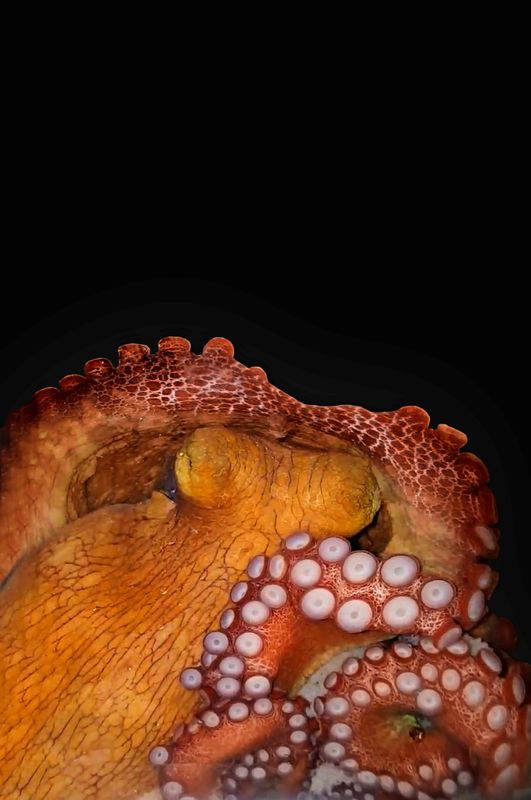By Will Dunham
(Reuters) - The octopus is an extraordinary creature - and not only because of its eight limbs, three hearts, blue blood, ink squirting, camouflage capacity and the tragic fact that it dies after mating.
A study by researchers in Brazil published on Thursday shows that this animal, already considered perhaps the smartest invertebrate, experiences two major alternating sleep states eerily similar to those in humans - and it even might dream.
The findings, the researchers said, provide fresh evidence that the octopus possesses a complex and sophisticated neurobiology that underlies an equally sophisticated behavioral repertoire, while also offering broader insight into the evolution of sleep, a crucial biological function.
Octopuses previously were known to experience sleep and change colors while slumbering. In the new study, the researchers observed a species called Octopus insularis in a laboratory setting. They found that these color changes are associated with two distinct sleep states: "quiet sleep" and "active sleep."
During "quiet sleep," the octopus remains still, with pale skin and eye pupils contracted to a slit. During "active sleep," it dynamically changes its skin color and texture and moves both eyes while contracting its suckers and body, with muscular twitches.
A repeating cycle was observed during sleep. "Quiet sleep" typically lasted roughly seven minutes. The subsequent "active sleep" typically lasted less than a minute.
This cycle appears analogous, the researchers said, to the alternating "rapid eye movement," or REM, and "non-rapid eye movement," or non-REM, sleep states experienced by people, as well as other mammals, birds and reptiles.
Vivid dreaming occurs during REM sleep, as a person's eyes move rapidly, breathing becomes irregular, the heart rate increases and the muscles become paralyzed to not act out the dreams. Non-REM sleep features more deep sleep and less dreaming.
Study lead author Sylvia Medeiros said the findings suggest octopuses may be dreaming, or experiencing something similar.
"If octopuses indeed dream, it is unlikely that they experience complex symbolic plots like we do," said Medeiros, a doctoral student in neuroscience at the Brain Institute of the Federal University of Rio Grande do Norte.
"'Active sleep' in the octopus has a very short duration, typically from a few seconds to one minute. If during this state there is any dreaming going on, it should be more like small video clips, or even GIFs," Medeiros added.
Scientists are seeking a greater understanding of the origins and evolution of sleep.
Because the last common ancestor of vertebrates, including humans, and cephalopods, including octopuses, lived more than half a billion years ago, it seems unlikely their similar sleep patterns were established before their evolutionary divergence, the researchers said.
That would mean, they added, that this similar sleep pattern arose independently in the two groups, a phenomenon called "convergent evolution."
"The investigation of sleep and dreaming in the octopus gives us a vantage point for the psychological and neurobiological comparison with vertebrates, since the octopus possesses several sophisticated cognitive features that are only seen in some vertebrate species but with a very different brain architecture," said study co-author Sidarta Ribeiro, founder of the Brain Institute.
Ribeiro noted that previous studies showed that octopuses, with the most centralized nervous system of any invertebrate, possess exceptional learning abilities, including spatial and social learning, as well as problem-solving capabilities.
"The understanding of how organisms as different as humans and octopuses can share fundamental traits such as the sleep cycle opens new avenues for the investigation of animal cognition and for the understanding of the general principles that shaped brain design in these groups of highly intelligent animals," Medeiros said.
